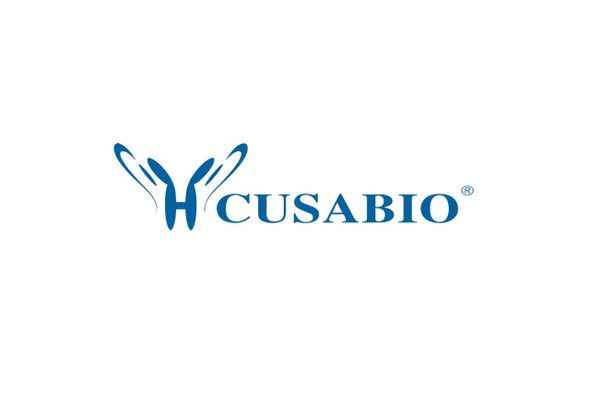Cusabio Active Proteins
Recombinant Human Arginase-1 (ARG1) (Active) | CSB-AP005611HU
- SKU:
- CSB-AP005611HU
- Availability:
- 5 to 10 Working Days
Description
Recombinant Human Arginase-1 (ARG1) (Active) | CSB-AP005611HU | Cusabio
Protein Description: Full Length
Alternative Name (s) : Arginase-1; Liver-type arginase; Type I arginase; ARG1
Gene Names: ARG1
Research Areas: Signal Transduction
Species: Homo sapiens (Human)
Source: Mammalian cell
Tag Info: C-terminal 6xHis-tagged
Expression Region: 1-322aa
Sequence Info: MSAKSRTIGIIGAPFSKGQPRGGVEEGPTVLRKAGLLEKLKEQECDVKDYGDLPFADIPNDSPFQIVKNPRSVGKASEQLAGKVAEVKKNGRISLVLGGDHSLAIGSISGHARVHPDLGVIWVDAHTDINTPLTTTSGNLHGQPVSFLLKELKGKIPDVPGFSWVTPCISAKDIVYIGLRDVDPGEHYILKTLGIKYFSMTEVDRLGIGKVMEETLSYLLGRKKRPIHLSFDVDGLDPSFTPATGTPVVGGLTYREGLYITEEIYKTGLLSGLDIMEVNPSLGKTPEEVTRTVNTAVAITLACFGLAREGNHKPIDYLNPPK
Biological Activity: Specific activity as determined by the production of urea during the hydrolysis of arginine is greater than 30000 pmol/min/µg.
MW: 35.6 kDa
Purity: Greater than 90% as determined by SDS-PAGE.
Endotoxin: Less than 1.0 EU/µg as determined by LAL method.
Relevance: ARG1 is a member of the ureohydrolase family of enzymes. ARG1 can catalyze the hydrolysis of arginine to ornithine and urea. In the urea cycle, ARG1 catalyzes the fifth and final step, a series of biochemical reactions in mammals during which the body disposes of harmful ammonia. ARG1 is a cytosolic enzyme and expressed widely in the liver as part of the urea cycle, while it is also expressed in cells and tissues that lack a complete urea cycle, including lung. Inherited deficiency of this ARG1 causes argininemia, which is an autosomal recessive disorder characterized by hyperammonemia.
PubMed ID:
Notes: Repeated freezing and thawing is not recommended. Store working aliquots at 4℃ for up to one week.
Function: Key element of the urea cycle converting L-arginine to urea and L-ornithine, which is further metabolized into metabolites proline and polyamides that drive collagen synthesis and bioenergetic pathways critical for cell proliferation, respectively; the urea cycle takes place primarily in the liver and, to a lesser extent, in the kidneys.
Involvement in disease: Argininemia (ARGIN)
Subcellular Location: Cytoplasm, Cytoplasmic granule
Protein Families: Arginase family
Tissue Specificity: Within the immune system initially reported to be selectively expressed in granulocytes (polymorphonuclear leukocytes [PMNs]) (PubMed:15546957) . Also detected in macrophages mycobacterial granulomas (PubMed:23749634) . Expressed in group2 innate lymphoid cells (ILC2s) during lung disease (PubMed:27043409) .
Paythway:
Form: Liquid
Buffer: 0.2 μm filtered 20 mM Tris-HCl, 150 mM NaCl, 20% Glycerol, 1 mM DTT, pH 7.4
Reconstitution:
Uniprot ID: P05089
Uniprot Entry Name:
HGNC Database Link: HGNC
UniGene Database Link: UniGene
KEGG Database Link: KEGG
STRING Database Link: STRING
OMIM Database Link: OMIM









